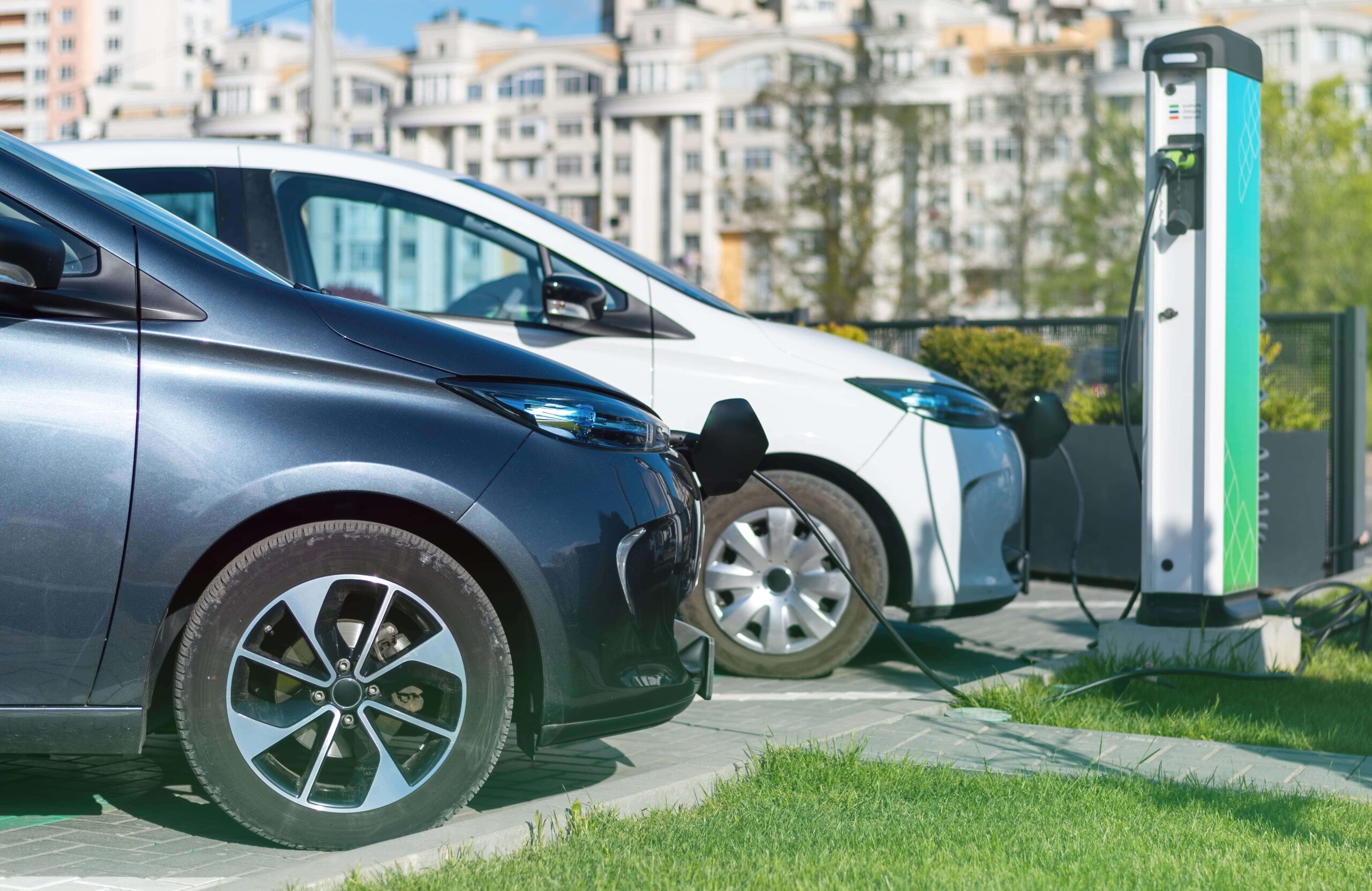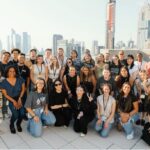By Bonface Orucho
Nigeria’s local EV (electric vehicle) assembling and production is growing, evidenced by the recent unveiling of a high-performance, all-electric SUV built on home soil.
The launch signals a growing confidence in domestic capacity and a fresh wave of momentum in the country’s electric mobility journey.
The vehicle, known as the M-Hero 917, is a military-inspired electric SUV with a four-motor all-wheel drive system and near-instant torque delivery.
The M-Hero, assembled in Nigeria through a partnership between Chinese automaker Dongfeng and SAGLEV Electromobility, blends luxury performance with local engineering.
“This is more than just a car launch,” according to Michaela Abor Adebola, an energy mobility analyst based in Abuja.
“It’s a marker of intent. It shows that global EV manufacturers are starting to see Nigeria not just as a market to sell into, but a country to build with,” he added in a call.
The shift to local EV assembly has in recent years become more evident across the continent. In countries like Kenya, Rwanda, and South Africa, local companies are assembling electric buses, motorcycles, and utility vehicles tailored for domestic needs.
Now, Nigeria is joining the pack. From high-end SUVs like the M-Hero to tuk-tuks, two-wheelers, and delivery bikes, the range of locally assembled EVs in the country is steadily growing.
According to Climate Scorecard, Nigeria has an estimated 15,000 to 20,000 electric vehicles on its roads as of 2025. While this is still a small fraction of the country’s total vehicle population, it is a notable jump from five years ago when EVs were virtually absent.
The country’s EV market is projected to grow at a rate of 6.8% annually through to 2031.
Part of what’s fuelling this momentum is a series of bold moves by local and regional players. NEV Electric, for instance, a local firm, plans to produce 2,000 high-capacity EVs and up to 10,000 micro-EVs by the end of the year. It’s the manufacturing arm of Possible EVs, a 2021 company, that aims to create more awareness about EVs in Nigeria and make them more affordable.
Meanwhile, Spiro, one of Africa’s largest electric mobility companies, has deployed over 33,000 electric motorcycles across the continent. Its battery-swapping model, now with around 9 million swaps across seven African countries is gaining popularity among urban riders and delivery services.
In January 2025, Spiro announced a partnership with Afrobeats superstar Davido to promote clean, stylish mobility and sustainable living. The collaboration is part of a broader push to inspire a cultural shift toward electric transport, blending technology, music, and climate action.
Spiro also maintains a technical innovation centre in Lagos, supporting local expertise as it scales its footprint across the continent.
In Ogun State, there is also an EV transformation underway. The state is emerging as a manufacturing and logistics hub for Nigeria’s e-mobility sector, attracting a mix of local startups and global firms.
One of the notable players is Phoenix Renewables, which operates a solar-powered facility assembling electric three-wheelers tailored for last-mile delivery in urban and peri-urban areas.
The company’s focus is on clean transport, and energy independence leveraging off-grid solar systems to reduce reliance on Nigeria’s unstable national grid.
JET Motor Company, an indigenous EV manufacturer, has also established operations in the state, with a pipeline of electric vans and minibuses designed for corporate fleets, ride-hailing, and inter-city travel.
The company is developing a range of vehicles engineered to perform on Nigeria’s challenging roads, with battery performance and chassis durability adapted to local conditions.
In 2024, Ogun State signed a public-private agreement to expand EV adoption through the establishment of dedicated EV zones, including planned charging infrastructure and training centres.
According to Techpoint Africa, the state is working with firms like Spiro to pilot electric motorcycles and battery swap hubs in select municipalities, integrating e-mobility into local transport systems and pushing for cleaner urban transit.
Different multinationals are also rapidly making inroads in the country.
China, in particular, is playing a visible role. Automakers like BYD, JAC, and Dongfeng are already present in Nigeria through assembly partnerships or dealership networks.
The M-Hero launch is one of several signs that Chinese manufacturers are deepening their stakes in Nigeria’s auto future offering financing, after-sales support, and adapting models to local road and fuel conditions.
According to a February Bloomberg report, the rise of Chinese EV brands in Nigeria has been partly driven by high fuel prices and consumer demand for cheaper alternatives to petrol cars.
Lagos now hosts more than a dozen EV dealerships selling Chinese-made vehicles, many offering flexible payment plans and growing after-sales support networks.
The shift is also infrastructural. In Lagos, EV companies are setting up charging stations and battery swap hubs in key commercial zones.
In April 2025, Foltï Technologies launched eDryv in Lagos, Nigeria’s first ride-hailing platform powered almost entirely by solar energy. The service operates a fleet of Dayun-branded electric MPVs and SUVs with driving ranges of up to 450 km, supported by solar charging hubs and a 460 kWh energy storage facility in Victoria Island.
Unlike traditional platforms, eDryv offers rides at under ₦320 (US$0.21) per km and rewards eco-conscious trips through a “Green Coins” loyalty system that discounts future fares.
Vehicles aren’t sold or leased, instead, drivers are employed on full-salary contracts, ensuring quality control and lowering the barriers to entry.
Foltï plans to expand the solar charging network and is targeting the establishment of an EV assembly plant in Abeokuta, Ogun State, by 2026–27 to strengthen local production capacity and value chains.
Policy support is also evolving. While Nigeria’s national electric mobility policy has yet to be finalised, the National Automotive Design and Development Council (NADDC) has backed local assembly efforts.
The council has supported pilot projects and training programs and is working on a framework for EV charging infrastructure standards. Lagos State has also shown early interest in integrating electric buses into its public transport system.
According to sector analysts, the bigger picture is that Nigeria is beginning to joining African frontrunners especially those in the Eastern African region.
“This is how you build an industry,” according to Ayodele Alabi. “Start with local assembly, create partnerships that stick, and build trust with consumers. We’re finally seeing all of that come together.”
“While countries like Kenya and Rwanda have made headlines for electric motorbike adoption, Nigeria’s size, urban density, and manufacturing base give it unique advantages. Foreign automakers seem to be betting on that.”
Still, challenges remain. Electricity supply remains unreliable in most parts of the country, and the cost of EVs, especially high-end models, remains out of reach for many.
“Without strong government incentives or a clear nationwide policy, the pace of adoption could slow. Yet even with these limitations, the tone of the industry is changing.”
bird story agency
Nigeria's electric vehicle (EV) industry is witnessing growth marked by the launch of the M-Hero 917, a locally assembled, high-performance electric SUV by a joint effort from China's Dongfeng and SAGLEV Electromobility.
This move underscores the shift towards domestic EV assembly, reflecting Nigeria's potential to become a major player in the electric mobility sector, akin to Kenya, Rwanda, and South Africa.
The Nigerian EV market is forecasted to grow at 6.8% annually till 2031. Key factors fueling this growth include local companies like NEV Electric and Spiro, which are enhancing production capacity and promoting EV adoption through initiatives such as battery-swapping models and collaborations with celebrities like Afrobeats superstar Davido.
Ogun State has emerged as a key hub for manufacturing and logistics, with companies like Phoenix Renewables and JET Motor Company contributing to local production.
International automakers, particularly from China, are capitalizing on the high fuel prices and demand for alternatives to petrol cars.
They've set up assembly partnerships and dealership networks in Nigeria, enhancing affordability and after-sales support.
The infrastructure is also developing, with Lagos hosting EV dealerships and charging stations.
However, challenges such as unreliable electricity supply and the high cost of EVs persist.
The National Automotive Design and Development Council is advocating for supportive policies and infrastructure standards, with the hope of sustaining the industry's momentum and overcoming these obstacles.






